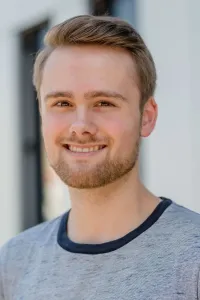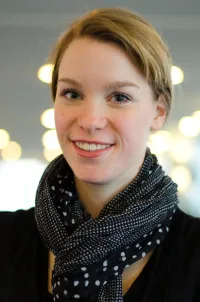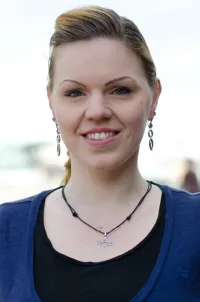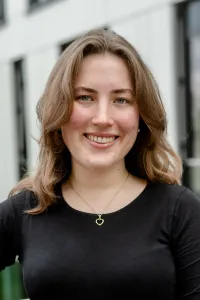
Daniel Eggerichs is pursuing the Master of Science degree, 1-subject programme.
What made you choose this degree programme?
I knew in the 11th grade that I would definitely study a natural science. I eventually opted for the degree course in biochemistry, because biochemists have good career chances and it is also possible to effect a lot as an individual. After all, chemistry is in everything that surrounds us. As I have always been fascinated by chemistry in biological applications, I wanted to become a “drugs developer” – a naïve way of putting it, the way you think at school. I never regretted this decision. My goals might have changed since then, but the dream of the countless opportunities offered by biochemical research has remained.
In which respect have or haven’t your expectations been fulfilled?
I must admit, I didn’t have any clear expectations when I took up my degree course; I have taken it in stride. A pleasant surprise were the many practical exercises and the high chemistry percentage. You spend one third of your degree course in the lab and conduct experiments of all kind. Not only is this great fun, but it is also a huge upside when compared with other degree courses or universities. Moreover, I’m not a huge fan of plants, animals and all creatures great and small, and so I was very happy that the biological principles were soon broken down to the underlying chemical processes, without having to study the organism as a whole. It should definitely be noted that biochemistry at RUB is very much a chemistry discipline.
Which aspect of your degree programme do you enjoy most?
As mentioned above, working in the lab – which is part of the degree course – is what I enjoy most. More often than not, you work in small groups with other students so that you’ll soon find yourself part of a true fellowship. This happens also because the degree course is very small, with only approx. 80 students, and so you really get to know everybody. Together, you won’t just make it through every internship, but you will also make the best of every situation and will struggle through the difficult periods together.
What has been your biggest challenge to date?
The greatest challenge in this degree course is setting up an excellent time management strategy. You might have to deal with lectures, seminars and internships all at the same time. Then, your time management must be very good, in order to master all tasks within a limited period of time.
What would you like to become after completing your degree?
After learning a broad range of scientific principles in my Bachelor’s degree, I am now specialising in one discipline in my Master’s degree. I’m going to focus on the genetic aspects of biotechnological processes, especially the optimisation of catalytic enzymes as a branch of prokaryote genetics and biotechnology. Or to put it in simpler terms: I want to modify bacteria genetically so that they’ll produce, for example, drugs, thus rendering expensive technical production unnecessary.
Which advice would you like to give to students who consider enrolling in this degree programme?
Biochemistry is a highly demanding and time-consuming degree course. What you need is, first and foremost, a great deal of motivation and enthusiasm for the tiniest processes of life and their effects on the thing as a whole. Moreover, you should have something of an inquiring mind and the desire to make the world a better place. As long as you maintain a level of motivation for the subject and if you are not discouraged by setbacks, you can do it – regardless how much prior knowledge you have from school. My advice: Hang in there and never underestimate how much material is covered in the lectures





